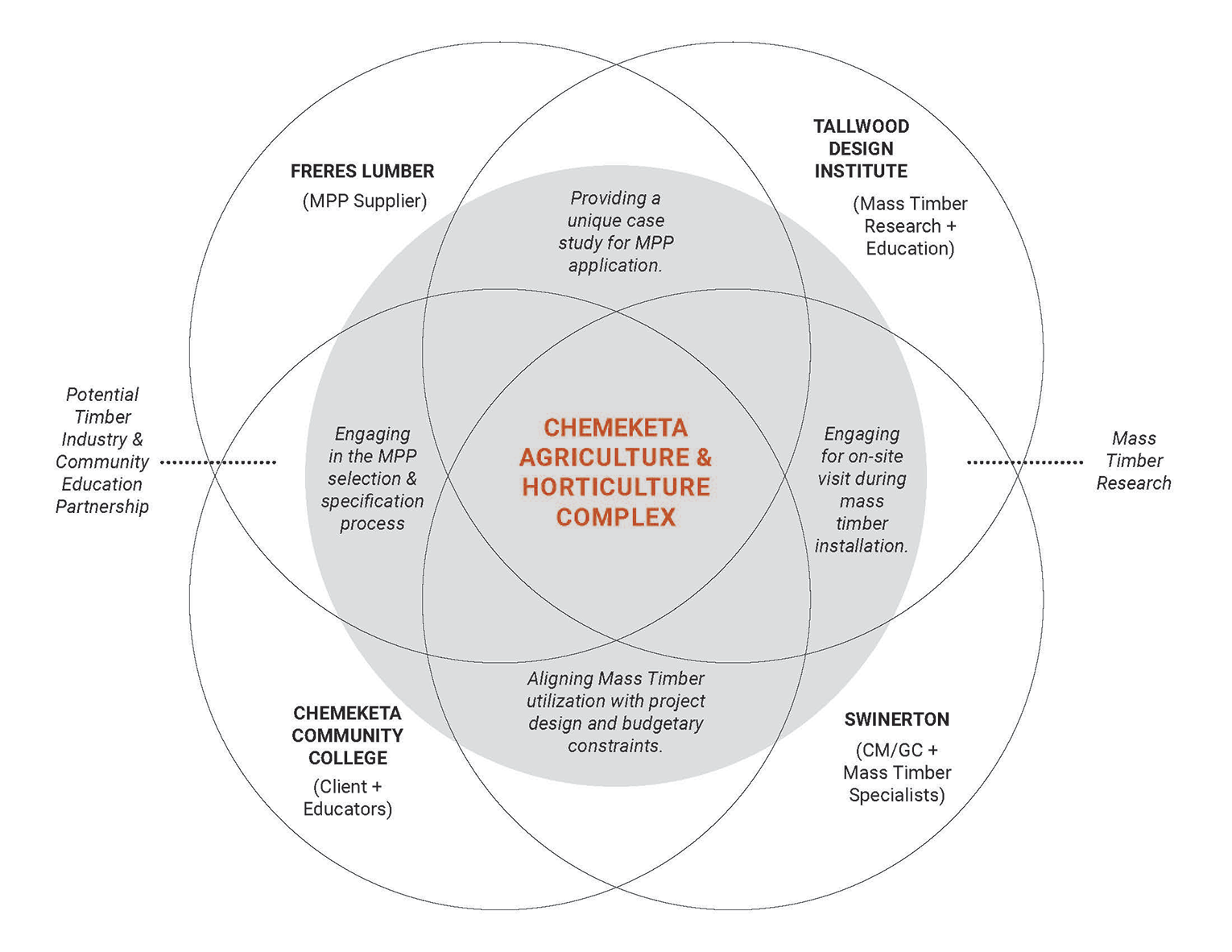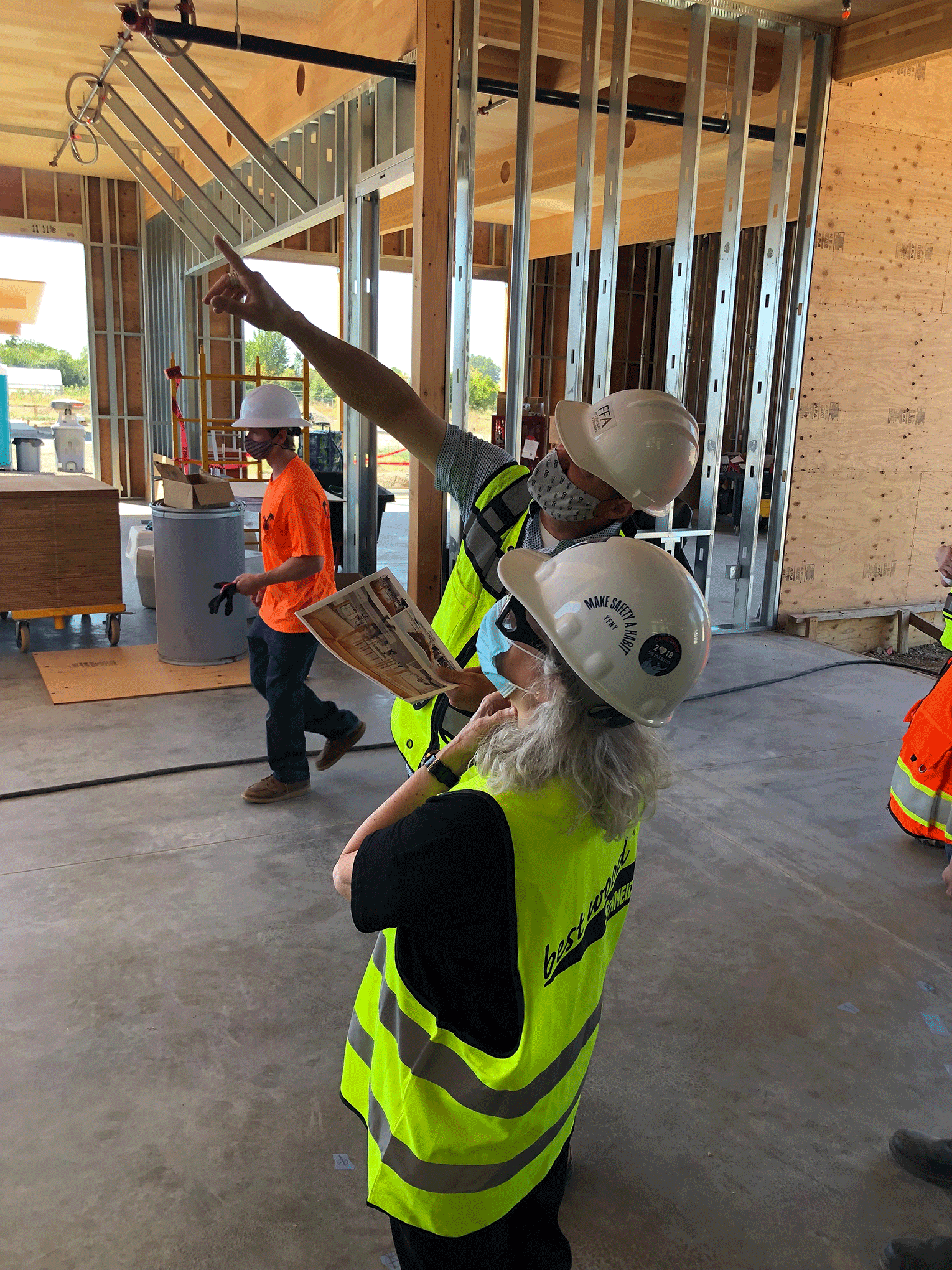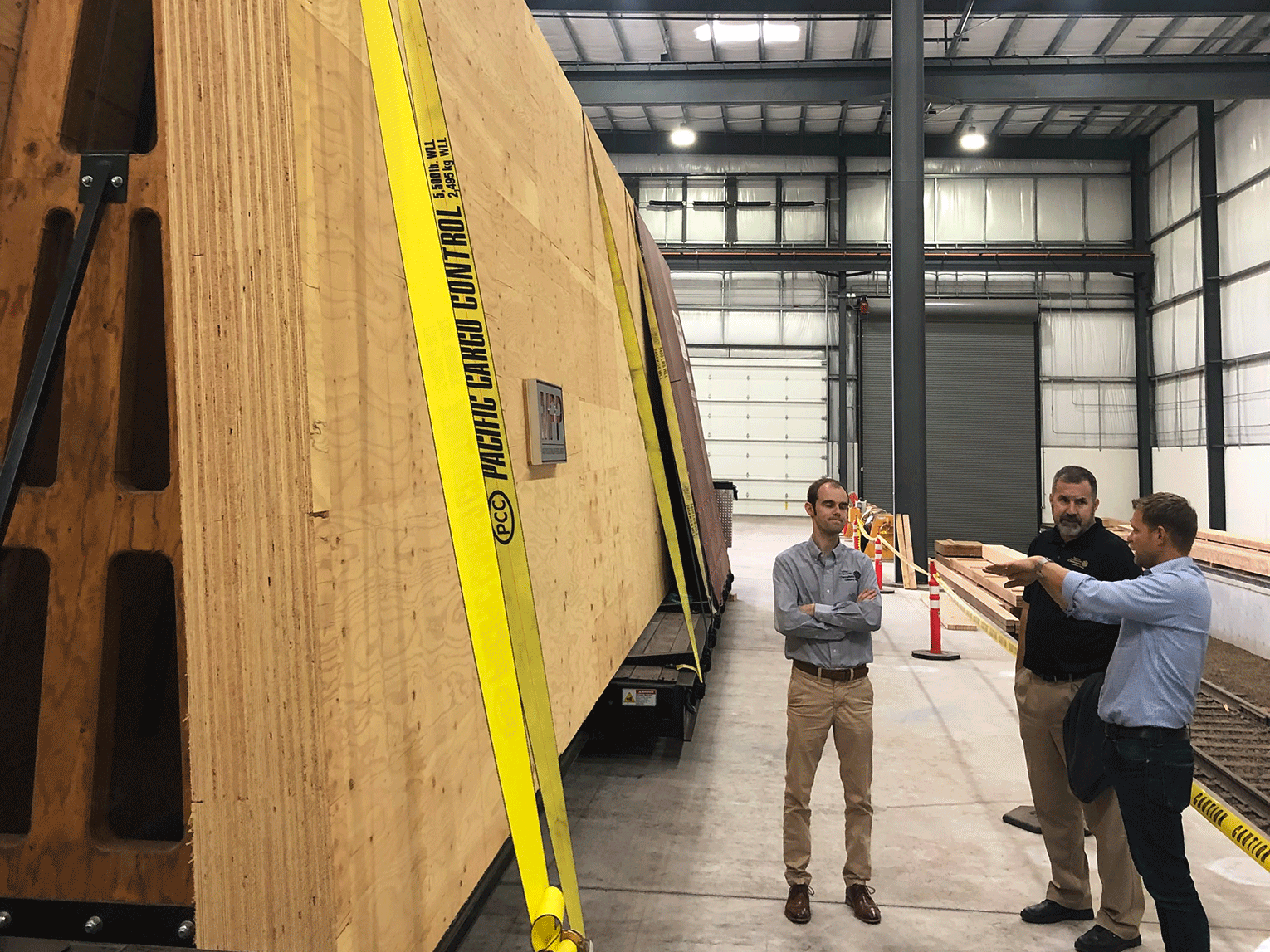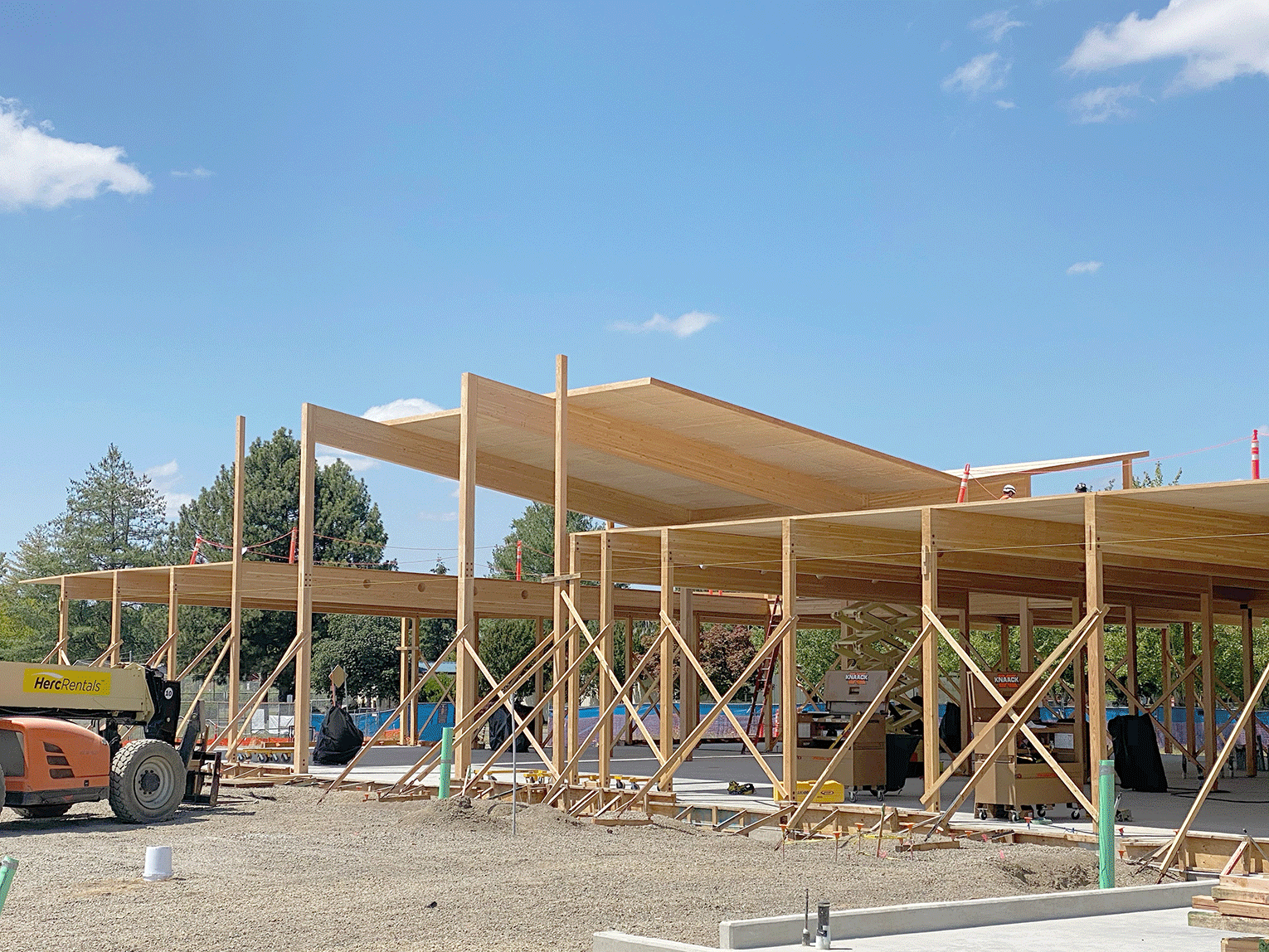At FFA, we understand architecture is about making connections. For the Chemeketa Community College Agriculture Complex, using mass timber from the region was key to the client’s goals and design intent. To make the use of mass timber a reality, the project team fostered connections across distinct entities. These connections also supported the design, construction, and timber industries in our region. Along with FFA, these groups included Swinerton the project’s General Contractor, Freres Lumber, the project’s mass timber manufacturer and supplier, Chemeketa Community College, and the UO/OSU Tallwood Design Institute, a beacon of Mass Timber research and education for our region and beyond.
In addition to their role as a General Contractor, Swinerton came on board early in the design process as a Construction Manager to provide preconstruction guidance. Given the agricultural focus of the project’s academic program, the design team wanted to celebrate the use of a key local agricultural product in the Pacific Northwest — timber. On a project with a fixed budget, Swinerton played a vital role in finding the most efficient use of mass timber. With the agricultural complex consisting of single-story structures, the original design intent was to use glue-laminated timber (glulam) columns and beams to support a cross-laminated timber (CLT) roof. Through a collaborative design process, Swinerton was able to recommend the new mass timber product, Mass Plywood Panels (MPP), as the most efficient and cost-effective roof system. The thin individual laminations of plywood that make up the panels allow for smaller incremental changes to MPP thickness. These can be increased or decreased depending on structural demands. Using a rigorous small-span structural grid, the design team reduced the roof MPP thickness to just two inches (2”) for much of the building.
Understanding the physical performance of MPP was only part of the process. Because it is a new product with a unique visual appearance, FFA, Swinerton, and the Chemeketa team worked to understand the aesthetic, experiential, and financial implications of using it. After discussions, MPP emerged as the product best suited to meet the goal of supplying a raw and natural aesthetic that reflects the nature of the academic program.
Oregon-based Freres Lumber is the lone MPP manufacturer in the world and its facilities are less than 30 miles from Chemeketa Community College’s Salem campus. The greatly reduced delivery distance, compared to other building materials, was an inherent environmental benefit. Also, MPP is made from renewable timber and plywood veneers that make more efficient use of raw tree material than sawn lumber. In addition to environmental considerations, the use of MPP also helped support the region’s economy.
As soon as MPP was proposed as a possibility for the project, the team worked together to better understand this new product. FFA and Chemeketa visited Freres’ Lyon, OR manufacturing facility. There they were able to discuss project goals, learn more about the MPP manufacturing processes, and gain a fuller understanding of the options available for use as a finished product. Fostering this relationship helped increase the college’s comfort level of using a new product. Understanding the goal of putting a key local agricultural product on display, FFA and Freres were able to work together to accommodate a higher-grade finish veneer on the exposed underside of the panels. Together, the team was able to deliver a clean, hardworking aesthetic that suits the agriculture-centric academic program.
The relationship between Chemeketa and Freres helps both the region’s education and timber industries. Chemeketa has a great legacy as a community educator and serves local industries with a strong talent pool. As they better understand the latest innovations in mass timber and the direction of the industry, they have the option to tailor and expand their education services to align with industry goals. Freres and Chemeketa intend to remain allies well beyond the construction life of this project.
Earlier this fall, the design and client team also hosted Judith Sheine, the Design Director of the Tallwood Design Institute (TDI) for a site tour of the new agriculture complex. TDI is the leading resource for Mass Timber Research & Education for both students and industry professionals. Having previously connected with TDI in several ways, the Chemeketa Agricultural Complex provided FFA and Swinerton with a unique opportunity to build on an existing relationship. With the project under construction, the site visit allowed TDI to capture and document exposed details on an MPP project, and to discuss them with the design and construction teams in real-time. FFA will continue to engage with TDI by sharing design documents for the Agriculture Complex, as well as for other projects using mass timber. Our goal is to support them as they continue to build industry knowledge around developing mass timber products.
All collaborators are excited to have a building that acts as a case study highlighting the use of exposed MPP. The Chemeketa Agricultural Complex will be a local resource for future project design teams and a place for Freres to display what is typically an industrial product, in a high-quality academic building environment. This also holds true for the TDI. Mass timber products are often seen as an alternative to concrete and steel and are often proposed on towering multi-story projects. The completed Agriculture Complex will illustrate how MPP is a viable choice for smaller projects with limited budgets.






